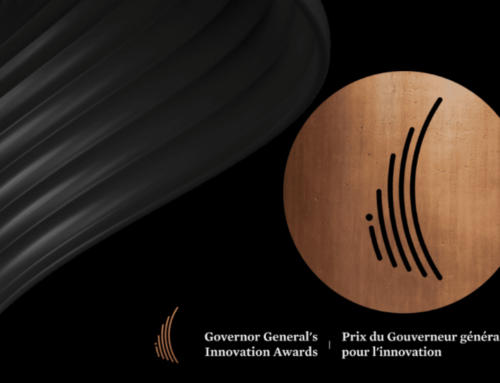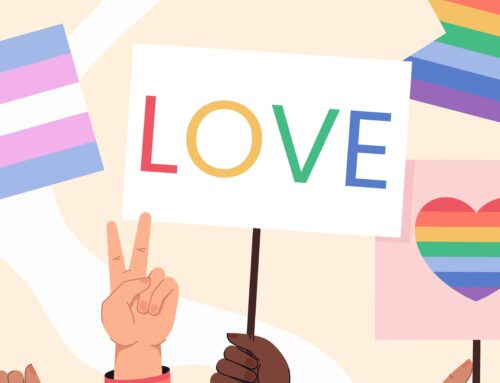Anti-Black racism has a long history in Canada, and the experience is intersectional. Black women, girls, trans, and nonbinary people experience discrimination based on their race and their gender, as well as other identity factors such as their sexuality, ability, faith, age, and more.
These resources on ending anti-Black racism and misogynoir in Canada are particularly helpful for non-Black people to educate themselves and share with others.
We’ll add to this list as new resources become available, and we encourage you to link to any you’ve found helpful in the comments.
Listen – A note about content: many of these episodes address gender-based violence. Please listen with care.
Misogynoir in Digital Spaces With Yamikani Msosa
In Canada, 44% of women and gender-diverse people aged 16 to 30 have been personally targeted by hate speech online. Those most likely to be targeted include Black women and gender-diverse people. The data available paints a distressing picture. UK and US data shows that racialized women are 34% more likely to be mentioned in abusive or problematic tweets than white women, and Black women are especially targeted. They are 84% more likely than white women to be mentioned in these tweets. Our podcast guest Yamikani Msosa (they/them) helps us understand these experiences so often under-recognized in research.
Misogynoir and Healing Journeys With Monica Samuel
Misogynoir is a term coined by Dr. Moya Bailey to describe the distinctive form of anti-Black sexism faced by Black women. Though Black women are highly educated, they face disproportionate barriers to entrepreneurial financing and support. They’re racially profiled and over-incarcerated, and over-represented when it comes to chronic illnesses. Listen to Monica Samuel’s insights on how we can better support the healing journeys of Black women, girls, and gender-diverse people
Gender Pay Gaps, Plural with Dr. Hadiya Roderique
In Canada, women make 88 cents for every dollar men make. But there’s more than one gender pay gap because those who face gender inequalities are a diverse population. Racialized women make 67 cents to the dollar for racialized men, Indigenous women make 65 cents to the dollar for Indigenous men, newcomer women make 71 cents to the dollar for newcomer men, and women with disabilities also have lower average incomes compared to men with disabilities. Learn about the impacts of gender pay gaps on Black and equity-seeking women.
Family Violence, Racialized Survivors With Simone Saunders
Family violence refers to many kinds of abuse and neglect in families. Umbrella terms like this can be challenging. Umbrella terms can also make it hard to envision how different people experience things differently depending on who they are. Simone Saunders elaborates on family violence in racialized families, explaining how “Black women especially are highly susceptible to family violence.”
Eternity: Listen without judgement
Statistically, girls and gender-diverse young people face high rates of intimate partner violence — rates more than double what women aged 25 to 44 experience, and more than six times higher than what women aged 65 or older experience, according to one national survey. Eternity Martis knows these statistics well, as an award-winning journalist, author, and assistant professor of journalism at Toronto Metropolitan University. Her 2020 memoir, They Said This Would Be Fun spotlights her experiences being a student of colour on a predominantly white campus, while also being with an abusive boyfriend.
Read
“One of the reasons that racism persists in Canada is because our commitment to the perception of racial tolerance & harmony seems to be prized above the actual lived experiences of people.” – R. Maynard
FoundHers Report finds that Black Women Entrepreneurs are highly educated and severely underfunded
Black Women’s Identity in Canada: Parting the Roots of Black Hair with Simone Wright
Author Robyn Maynard on Anti-Black Racism, Misogyny, and Policing in Canada
5 Black Women Talk About Their Lives In Canada–Past, Present And Future
Watch
Black Women + Beauty Standards: A Conversation on Subjects of Desire
What are the interconnections between Black women and beauty standards, anti-black racism and misogynoir, and gender-based violence and the pursuit of safety, rights, freedom, love, and gender justice? Watch this dynamic panel on themes and topics of the award-winning documentary, Subjects of Desire, which speaks to Black women and beauty standards and “deconstructs a harmful past to push new narratives toward a powerful and gorgeous future.”
Black Women Author Voices in the Journey to Gender Equality
Marking Black History Month 2021, this discussion featured four incredible Black women authors: Zalika Reid-Benta, author of Frying Plantain, Eternity Martis, author of They Said This Would be Fun: Race, Campus Life, and Growing Up, Jael Richardson, author of Gutter Child, and Francesca Ekwuyasi, author of Butter Honey Pig Bread.
This 2018 webinar from Yamikani Msosa explores the connections between sexual violence, state violence, and healing from collective and individual sexual abuse and trauma for Black survivors.
The Intertwined Journey Towards Gender and Racial Justice
Watch this 2010 discussion to learn about the Foundation’s commitment to challenging systemic racism through funding and by using our voice and platform to advocate for stronger action and accountability.
More resources:
- The late Honourable Rosemary Brown, first Black woman elected as a member of a provincial legislature in Canada, exemplified a tireless commitment to advancing gender equality. Learn more about the Rosemary Brown Giving Collective.
- This 2020 list of anti-racism resources is a robust source for everything from children’s books to podcasts recommendations. They are all still so relevant today. Check it out, and commit to reading, watching or listening to at least three of these texts.
- Time to Challenge Misogynoir in Fundraising and Nonprofits
- When Discrimination is About More Than Gender: The Village Bloggurls Tackle Race and Gender-Based Violence
- A Viola Desmond primer






